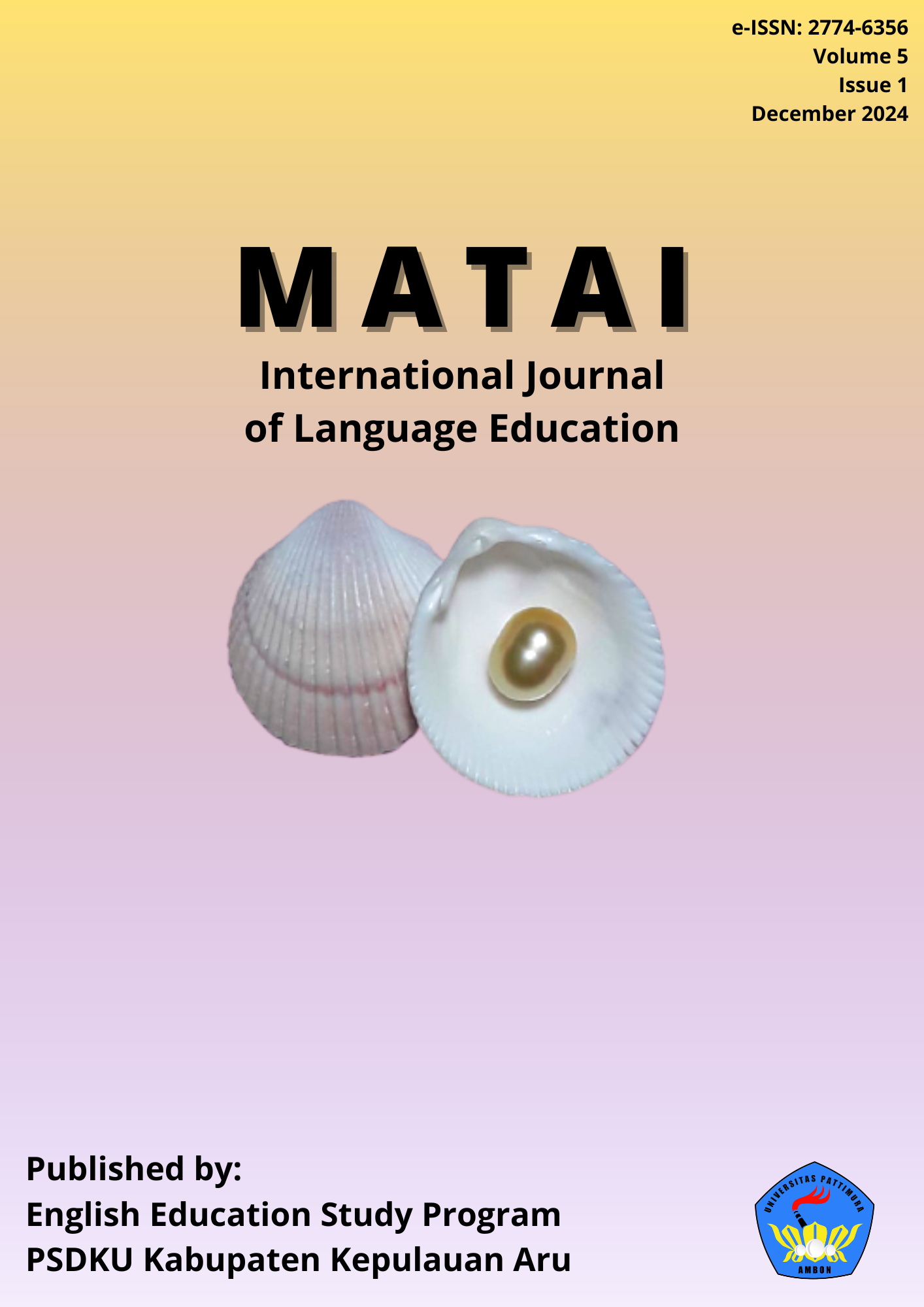The Correlation Between Students' Motivation and English Vocabulary Mastery: A Study at MIT Daarun Na'im Ambon
Abstract
This study investigated the relationship between students' motivation and English vocabulary mastery among third-grade students at MIT Daarun Na'im Ambon. Using a quantitative approach with a correlational design, the study involved 36 students selected through simple random sampling. Data were collected using Gardner's Attitude/Motivation Test Battery questionnaire and vocabulary test scores. The results revealed that students demonstrated moderate motivation levels (mean = 52.92) and good vocabulary mastery (mean = 79.75). Spearman correlation analysis showed a very weak positive correlation (r = 0.133, p > 0.05) between motivation and vocabulary mastery, indicating no significant relationship between these variables. This finding challenges common beliefs about the direct relationship between motivation and language learning outcomes in young learners, particularly in Indonesian Islamic elementary schools. The study suggests that vocabulary learning in young students may depend on various factors beyond motivation, such as teaching methods and classroom environment. These insights can help teachers develop better vocabulary teaching strategies in similar school settings.
Downloads
Copyright (c) 2024 Rosina F. J. Lekawael, Jusak Patty, Vilia Marhamah Namkatu

This work is licensed under a Creative Commons Attribution 4.0 International License.
Authors who decide to share their articles with this journal must agree with these requisites:
|
1. The author, as the copyright owner, gives Matai the right to publish their work 2. Authors can share their articles, but they have to use Matai's published version by acknowledging Matai as the source. 3. Authors are encouraged to share their work online in order to let people know about their articles which can lead to more citations of the published work. |



